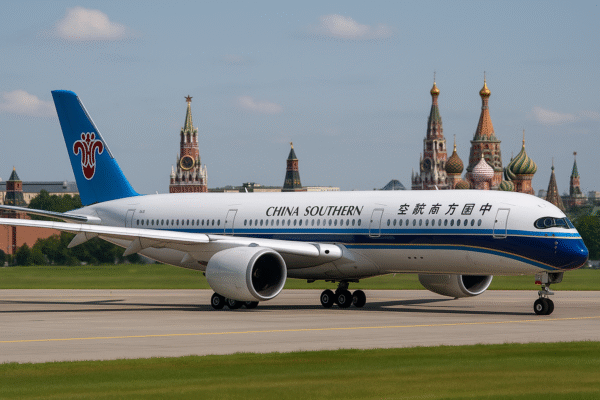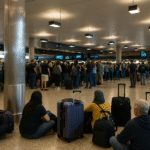Spirit Airlines Sparks Outrage After Miami Passenger Denied Boarding Over Outfit
Spirit Airlines is once again under public scrutiny after a recent incident at Miami International Airport (MIA) raised questions about airline dress codes and their enforcement. On July 16, 2025, a Chicago-bound passenger, Tanasia Grayer, was denied boarding by a Spirit Airlines gate agent who claimed her shorts were “too short” and “inappropriate” under the airline’s dress code policy.
Grayer, who had just arrived in Miami on a Spirit flight from Chicago earlier that day while wearing a similar outfit, said she was “confused and humiliated” when staff refused to let her board her return flight. The incident escalated quickly, with her sister reportedly arrested following a confrontation with airline staff. A photo of Grayer in her outfit, which circulated widely on social media, reignited debates around dress codes, body policing, and transparency in airline passenger policies.
What Happened at Miami International Airport?
According to Grayer, she was stopped at the gate by a Spirit employee who cited her shorts as “too revealing” to board the flight. Despite having passed through security and airport facilities without any issues, she was told her outfit violated the carrier’s policy on appropriate attire. The vague enforcement of the rule caused emotional distress and travel disruption.
Witnesses claim the situation deteriorated after Grayer questioned the inconsistency in policy application—having worn similar clothing on a Spirit flight hours earlier. The incident ultimately led to police involvement and the arrest of her sister, reportedly for disorderly conduct.
Spirit Airlines’ Dress Code Policy: Vague and Discretionary?
Spirit Airlines revised its Contract of Carriage in January 2025, stating passengers may be refused boarding if they are “barefoot” or “inadequately clothed.” The policy vaguely defines “inadequate” as clothing that is overly revealing, see-through, or bearing offensive or obscene graphics or language.
Critics argue that the lack of specific examples or visuals in Spirit’s dress code allows individual gate agents too much discretion, resulting in inconsistent enforcement. This isn’t the first such incident either. In June 2025, a passenger was reportedly removed from a Spirit flight for wearing a crop top, and another was denied boarding over clothing with explicit language.
While Spirit Airlines maintains it enforces the dress code in the interest of passenger comfort and safety, the subjective nature of what constitutes “inappropriate attire” has led to accusations of gender-based discrimination and personal bias.
A Broader Pattern Among Budget Carriers?
Low-cost carriers like Spirit are often under pressure to maintain order in a high-turnover, high-volume travel environment. However, frequent complaints of poor customer service, unpredictable fees, and now inconsistent enforcement of subjective rules have fueled a reputation crisis for Spirit Airlines.
According to the U.S. Department of Transportation (DOT), complaints against Spirit Airlines surged in the first half of 2025, with customer service issues, including staff conduct and rule enforcement, among the top grievances.
The situation has also raised concern among civil rights advocates and airline watchdog groups. Organizations like FlyersRights.org are calling for more standardized dress code policies across airlines and are advocating for more transparency and staff training to prevent incidents like Grayer’s from happening again.
The Impact on Passenger Confidence
For travelers, such incidents spark confusion and anxiety. Airline policies vary widely, and vague language around dress codes can leave even seasoned flyers unsure about what they can and cannot wear. With leisure travel rebounding and young, casual-dressed travelers making up a large portion of low-cost airline customers, unclear rules risk alienating key demographics.
Social media has become a powerful tool for passengers to share their experiences, and airlines can no longer afford to dismiss such incidents. The image of a distressed traveler and an arrested relative over a pair of shorts has already gone viral on TikTok and Instagram, prompting travel influencers to question what’s “appropriate” travel wear in 2025.
Could Spirit Do Better?
Spirit Airlines now faces a critical moment to review how it balances policy enforcement with customer experience. Experts in aviation regulation and public relations suggest that the airline could benefit from:
- Clear visual guidelines for appropriate attire published on boarding passes or the website
- Staff training on discretionary enforcement, with emphasis on de-escalation
- Appeal procedures for on-the-spot dress code decisions
- Transparent communication of policies prior to ticket purchase
A Lesson for Airlines and Passengers Alike
The Grayer incident underscores a key lesson: airlines must clearly communicate rules and enforce them consistently to build trust. Passengers, too, should familiarize themselves with each carrier’s policies before flying. While Grayer’s case may seem extreme, it’s part of a broader trend where fashion, gender, and policy intersect in unpredictable ways.
As Miami International Airport continues to serve as a major U.S. travel hub, and Spirit maintains a dominant low-cost carrier presence in Florida, incidents like this could have long-lasting reputational effects. With competitive airlines like JetBlue and Frontier offering similar price points, Spirit may need to reevaluate how such policies impact their brand perception.
Conclusion
The incident involving Tanasia Grayer at Miami International Airport isn’t just a dress code dispute—it’s a reflection of how airlines must evolve in the era of customer-driven accountability. As travelers continue to share their experiences in real-time, Spirit Airlines and others must ensure that their policies are not only legal but fair, consistent, and respectful.
For more travel news like this, keep reading Global Travel Wire

















